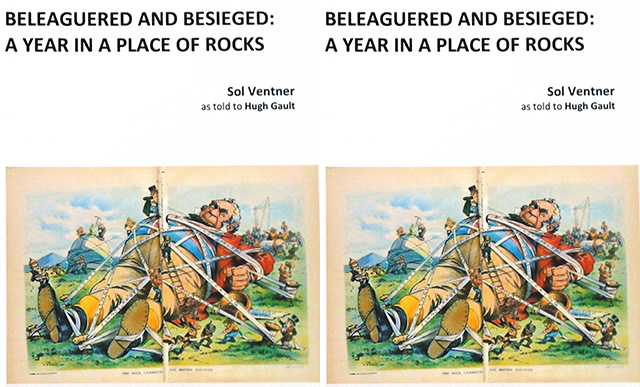Beleaguered and Besieged: A Year in a Place of Rocks
Book review

Beleaguered and Besieged: A Year in a Place of Rocks, Hugh Gault, Gretton Books, 2021, 124p, £10-00. ISBN 978-1-999851-9-5
Long-standing contributor to The Historian Hugh Gault has developed a novel approach to the study of the siege of Mafeking. The novelty occurs in two forms. He has created a diary to convey what happened, based on the writing of Sol Ventner but supplemented by further material; and he is also quite firmly pointing us to the parallels of experience between the besieged population of Mafeking in 1899-1900 and our contemporary experience during the pandemic.
Beleaguered and Besieged is an attractive analysis. Hugh Gault approached this topic, like most of us, with little detailed knowledge about what happened at Mafeking – apart from the role of Robert Baden-Powell – and he guides us carefully through what happened in terms of the lifestyle and experiences of the besieged. He introduces us to the fact that Mafeking had a neighbouring settlement of Mafikeng, both deriving their names from a local description of this location as ‘place of rocks’. The importance was that Mafeking was predominantly a European settlement and Mafikeng was the home of African people, all encompassed within one defensive ring facing Boer attacks.
The separation of the two communities within the defensive ring helps to reveal Hugh Gault’s parallel with our present-day experience of pandemic. Whereas there had been 10,000 African residents at the outset, in the seven months of the siege their number had virtually halved, a result largely of starvation and deprivation. This pattern was not paralleled within the European community. This is seen as directly comparable with the modern-day experience observed within the NHS with the casualty rate amongst ethnic minority staff being dramatically higher than amongst other staff. Beyond this he sees parallels between the need for soup kitchens in Mafikeng with food banks for the working poor in our own time.
We are offered a mirror to our modern experience and this reveals that it can provide a reflection of what happened in South Africa in the time of our great-grandparents.

